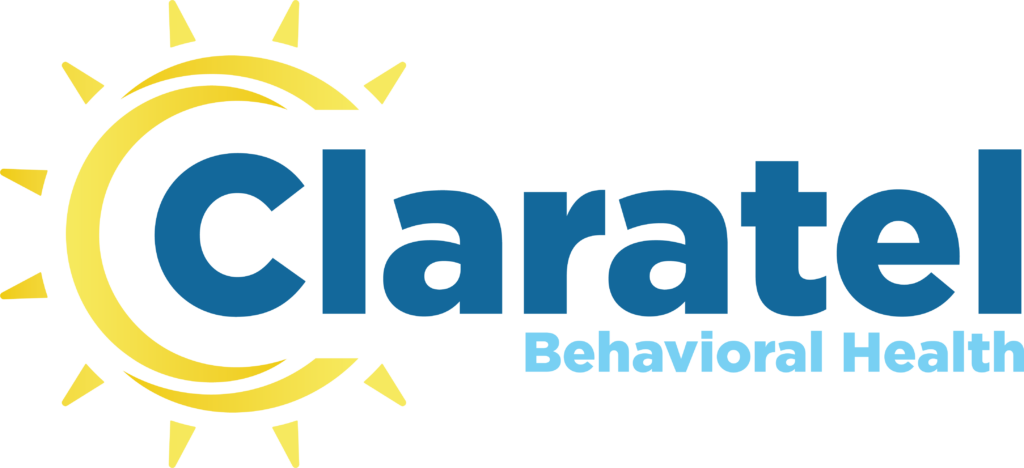Frequently Asked Questions
Our mission is simple: we strive to provide the right service, for the right person, at the right time.
Our vision is a community in which disabilities no longer limit potential.
Our Guiding Principles
- Learning: We work to establish a culture where staff can take chances on new ideas and are provided a safe space to make mistakes and learn from each other.
- Diversity: We will ensure that we have an environment that is inclusive, culturally sensitive, and provides ample opportunity for all to succeed.
- Teamwork: We are ONE TEAM. Our ability to persevere and be successful depends on our ability to work as a team.
- Goodness: Every effort should be made to ensure that our actions do the “most good” for staff and the individuals we serve. Standing on the firm ground of “doing good,” you become steadfast and confident in weathering any storm that may come.
- Connection: As an agency of people serving people, finding a way to create a human connection when working with staff, clients, and the community is vital to the work we do. By investing in making a human connection, we can create better understanding, openness, and mutual respect.
Over time, it has become clear that “DeKalb Community Service Board” did not adequately portray our healthcare mission and the culture of how well we serve our behavioral health and developmentally disabled clients. In addition, many of our constituents, as well as potential clients and employees, equated the name with providing community service opportunities. With a new mental health crisis community coming soon, the time is right to re-introduce ourselves to the public as the premier institution in the region for the treatment of behavioral health.
The name incorporates versions of the Latin words for “clear,” “bright,” and “wellness,” all of which are meant to convey the sense of hope and optimism we aim to provide our clients.
The process of choosing a new name included conducting several focus groups among staff and community members. We also consulted with board members who have undertaken successful rebranding processes in the past.
We serve uninsured and under-insured clients, about 75 percent of whom are from DeKalb County and the remainder from surrounding counties. During our most recent fiscal year, we served almost 11,000 people. We offer specific programs for children, adolescents, and adults.
For adults coping with substance use disorders or mental health challenges, Claratel Behavioral Health offers services including mental health crisis and residential treatment programs, psychosocial and peer day treatment programs, supported employment, outpatient counseling, psychiatric care and medications, nursing services, and community-based case management and skill-building. Our behavioral health professionals partner with clients to develop personalized treatment plans to help them on the path to recovery. Telehealth services are available. Claratel Behavioral Health assists clients as they transition from rehabilitation into daily life, helping them with peer support and employment to manage symptoms and recover quality of life.
Claratel Behavioral Health provides adults coping with substance-related and other psychiatric disorders with case management, treatment, counseling, education medication, and peer-led services.
For adults with developmental disabilities, Claratel Behavioral Health provides educational, therapeutic, and behavioral support services to individuals ages 21 and up and their families. Programs are designed to provide opportunities for individuals to maximize independence, increase skills, and live meaningful lives.
For children and adolescents, Claratel Behavioral Health offers mental health outpatient and community support services, developing a plan driven by the child and family. Claratel Behavioral Health also partners with local schools to provide an Emotional and Behavioral Support Services Program (EBSS), where child and adolescent specialty therapists provide school-based services, and the Georgia APEX Program (APEX). Additional services such as psychiatric evaluation, family therapy, medication services, community-based case management, and an onsite pharmacy are available.
Claratel Behavioral Health is a public non-profit organization. Its board members are selected by the DeKalb County CEO and approved by the DeKalb County Board of Commissioners. Each board member is a DeKalb County resident with a unique perspective on mental health, addiction, and developmental disabilities. For more information or to join board meetings, visit https://dekcsb.diligent.community/.
As an instrumentality of the State of Georgia and the behavioral health safety net provider for DeKalb County, Claratel Behavioral Health receives funding from several governmental sources including federal, state, and local government agencies. While Claratel Behavioral Health sets its own internal policies and procedures, it has access to state resources, and staff are considered state employees.
DeKalb County government officials have been incredibly supportive of our organization, acting as ambassadors for mental health and intellectual developmental disability services. We are also grateful to our CEO, county commissioners, state legislators, and countless other DeKalb County officials that help us to do our work well.
Claratel Behavioral Health receives funding support from DeKalb County through contracts with the State of Georgia and other entities, from client payments, and from donations through its fundraising arm, the Brighter DeKalb Foundation.
Since opening in 1996, the existing DeKalb Regional Crisis Center (DRCC) has been the only Behavioral Health Crisis Center (BHCC) in the six-county Region 3 area designated by the Georgia Department of Behavioral Health and Developmental Disabilities (DBHDD). The DRCC has the largest crisis stabilization bed capacity (36 beds) of any Crisis Stabilization Unit (CSU) or BHCC facility in the State of Georgia, but it has seen an increase in clients seeking services. As of June 2023, the DRCC had admitted 34 percent more people than during the same period in 2022.
There are currently no large-scale state-funded transitional bed facilities in Georgia that can provide wrap-around clinical, residential services once an individual is discharged from a crisis stabilization unit. Individuals served in a crisis unit are instead discharged to their residences, shelters, or limited recovery housing without transitional residential treatment. The new Mental Health Crisis Community will remedy this issue by also including a 24-bed transitional therapeutic residential program.
In addition, the new Mental Health Crisis Recovery Community will include the much-needed addition of 30 beds for crisis stabilization and 30 beds for detox (a 67 percent bed capacity increase), 20 beds for 24-hour observation (a 233 percent bed capacity increase), emergency evaluation, and a peer support center.
The existing crisis community will be converted into a 30-bed detox facility, providing five-to ten-day substance use detox services, residential support, psychotherapy, case management, and coordinating community treatment referrals.
In November 2023, DeKalb County voters approved a sales tax (SPLOST) that included $15 million dollars to be used towards the construction of the new mental health crisis community. While additional fundraising is still underway, this is a big step forward in addressing an ever growing need by people experiencing mental health crises and substance use disorders.
As a result of the pandemic, mental health conditions have increased considerably. The World Health Organization reports a 13 percent rise in mental health conditions and substance use disorders in the last decade. The Substance Abuse and Mental Health Services Administration (2022) states that one in four Americans has a mental or substance use disorder. It is essential to provide individuals with the necessary support, resources, and care to best address their mental health needs. Jails and emergency rooms cannot continue to be the solution.
The new Mental Health Crisis Recovery Community will help individuals experiencing a mental health crisis, positively affecting DeKalb County and the State of Georgia by reducing the hospitalization burdens in emergency rooms and by helping to reduce the rate of recidivism of ex-offenders in our community.
The DeKalb Opioid Residential Program, opened in 2016, is a recovery-oriented program that helps clients combat addiction while developing relapse-prevention skills. In 2022, 20 percent of its clients found steady employment after participating.
Claratel Behavioral Health is a longtime leader in partnering with law enforcement to better assist individuals experiencing a crisis in the community. For more than 26 years, Claratel Behavioral Health has established and grown a co-responder program with DeKalb County Police. Through a cooperative arrangement between Claratel Behavioral Health and the DeKalb County Police Department, a Mobile Crisis Unit that includes a clinician and a police officer intervenes and evaluates individuals to determine the best way to help them. In 2023, Claratel Behavioral Health expanded its co-responder program by establishing agreements with the Cities of Dunwoody, Doraville, and Decatur. In addition, Claratel Behavioral Health has created a co-responder case management opportunity with the City of Tucker.
Please see our FY23 Annual Report for the most recent data on our operations: https://dekcsb.org/reports-publications/.
Established in 2006, the Brighter DeKalb Foundation is a metro Atlanta nonprofit organization that helps youth and adults reclaim their lives by supporting the full continuum of behavioral health and developmental disability services provided by Claratel Behavioral Health. The Foundation creates and organizes fundraising and event partnerships between Claratel Behavioral Health and other health-related organizations.
Claratel Behavioral Health’s partners are many, including DeKalb County Government; the DeKalb Office of Family and Children Services; the Georgia Council on Developmental Disabilities; the Georgia Council on Substance Abuse; the Fulton-DeKalb Hospital Authority; the Metro Atlanta Regional Transportation Authority (MARTA); the National Alliance on Mental Illness (NAMI) DeKalb; MedCura Health; and others. Visit https://claratel.org/our-partners/ for a full list of Claratel Behavioral Health’s partners.
For mental health and substance abuse services, call 404-892-4646. For urgent situations, call 988; or, if you need an emergency response, call 911.
To determine eligibility for developmental disability services, contact the Georgia Department of Behavioral Health and Developmental Disabilities Region 3 Office for intake and evaluation at 770-414-3052 and online at https://dbhdd.georgia.gov/. For those in Region 3 with a Medicaid Waiver for NOW or COMP services who would like us to be your provider, contact Claratel Behavioral Health to set up a tour.
No one is denied access to services due to inability to pay. There may be a co-payment, or a client may be asked to pay an amount on a sliding fee scale based on income. In most cases, clients without insurance pay a small to zero co-pay. The following insurances are accepted: Medicaid, Peachcare for Kids, Amerigroup, Peachstate, and Care Source. Claratel Behavioral Health does not accept Medicare Advantage or private insurance plans.

